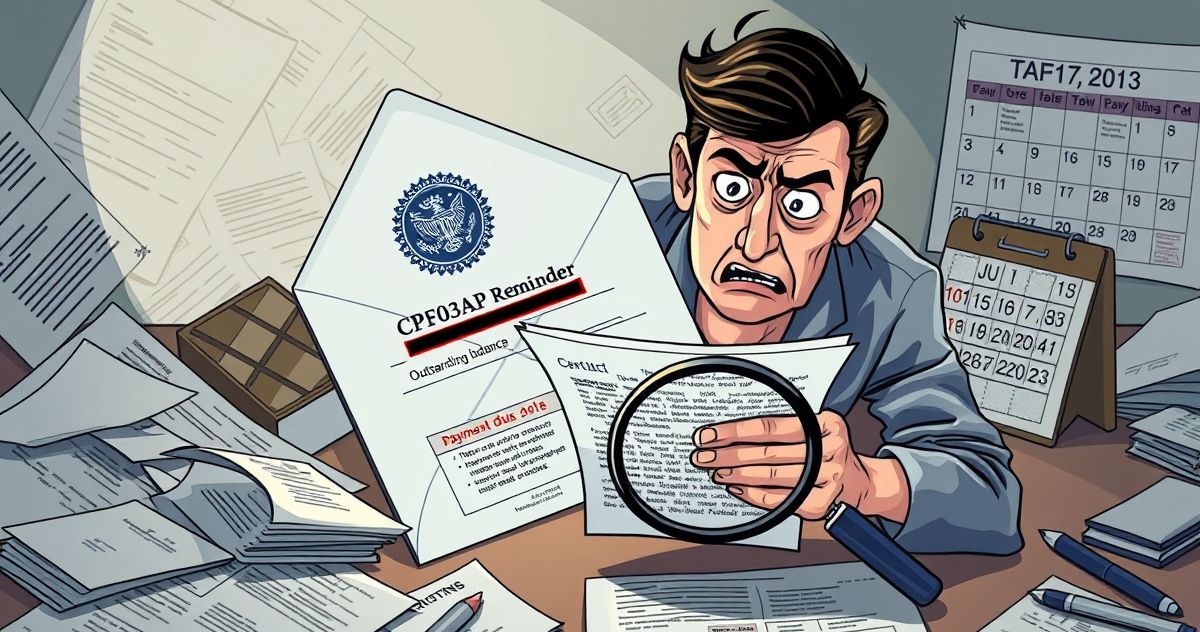Understanding the CP503AP Reminder
The CP503AP Reminder is an important communication tool used by the Internal Revenue Service (IRS) to notify taxpayers about an outstanding balance on their tax account. It serves as a crucial reminder for taxpayers to settle any unpaid taxes promptly. This notice is part of the IRS’s series of correspondence designed to ensure taxpayers are aware of their obligations and the implications of non-compliance.
What It Is and Its Primary Purpose
The primary purpose of the CP503AP Reminder is to inform and remind taxpayers of their unpaid tax liabilities. The notice outlines the specific amount due and provides clear instructions on how to resolve the debt. It acts as an urgent call to action, prompting taxpayers to address their financial responsibilities before more severe measures are taken by the IRS.
Unlike initial notices that might simply inform taxpayers of an outstanding balance, the CP503AP Reminder emphasizes the urgency and importance of taking action. It is typically issued after the taxpayer has received initial notices but has not responded adequately.
Key Features or Components
The CP503AP Reminder generally includes several critical components:
- Outstanding Balance: The notice specifies the exact amount owed by the taxpayer, including any accrued interest or penalties.
- Due Date: It highlights the deadline by which the balance must be paid to avoid further complications.
- Penalty and Interest: The notice often includes information about potential penalties and interest that will accrue if the taxpayer fails to comply.
- Payment Instructions: Detailed instructions on how to pay the outstanding balance are provided, ensuring taxpayers have the means to resolve the issue promptly.
- Contact Information: The CP503AP Reminder includes IRS contact information for taxpayers who may have questions or require assistance.
Relevant Filing or Compliance Requirements
Compliance with the CP503AP Reminder involves settling the outstanding balance by the specified due date. Taxpayers are encouraged to carefully review the notice and follow the payment instructions provided. The IRS provides multiple payment options, including online payments, payment plans, and, in certain cases, an offer in compromise.
If the taxpayer believes there is an error in the notice, they should contact the IRS immediately using the contact information provided to address any discrepancies or to dispute the claim.
Penalties or Consequences for Non-Compliance
Failure to respond to or comply with the CP503AP Reminder can lead to severe consequences. These include:
- Increased Penalties and Interest: Continued non-payment results in escalating penalties and interest, worsening the taxpayer’s financial burden.
- Enforcement Actions: The IRS may take enforcement actions, such as placing a lien on the taxpayer’s property or initiating wage garnishments.
- Credit Impact: Any liens placed by the IRS may affect the taxpayer’s credit score, making it difficult to secure loans or financing.
- Legal Consequences: In extreme cases, failure to respond could result in litigation or further legal action by the IRS.
Its Importance or Significance in Tax Resolution or General Financial Compliance
The CP503AP Reminder is a critical tool in the tax resolution process, serving as both a warning and an opportunity for taxpayers to correct financial missteps. In the broader context of financial compliance, it underscores the importance of staying current with tax obligations to avoid compounding debt.
Addressing the CP503AP Reminder promptly can lead to a resolution that prevents future enforcement actions, safeguards credit ratings, and ensures continued financial stability. It also exemplifies the IRS’s approach to encouraging voluntary compliance, providing taxpayers with the information needed to fulfill their responsibilities without immediate recourse to legal enforcement actions.
Consequently, understanding and responding to the CP503AP Reminder is essential for any taxpayer aiming to maintain a favorable standing with the IRS and to manage their financial obligations effectively. Regularly monitoring and addressing any IRS notices is key to preventing subsequent financial complications and ensuring a smooth tax filing process in subsequent years.
In summary, the CP503AP Reminder highlights the IRS’s commitment to ensuring compliance while providing taxpayers with the necessary tools to manage and resolve outstanding balances. Its role in the broader landscape of tax compliance reflects a balance between enforcement and taxpayer assistance, ultimately contributing to a more informed and financially responsible public.

